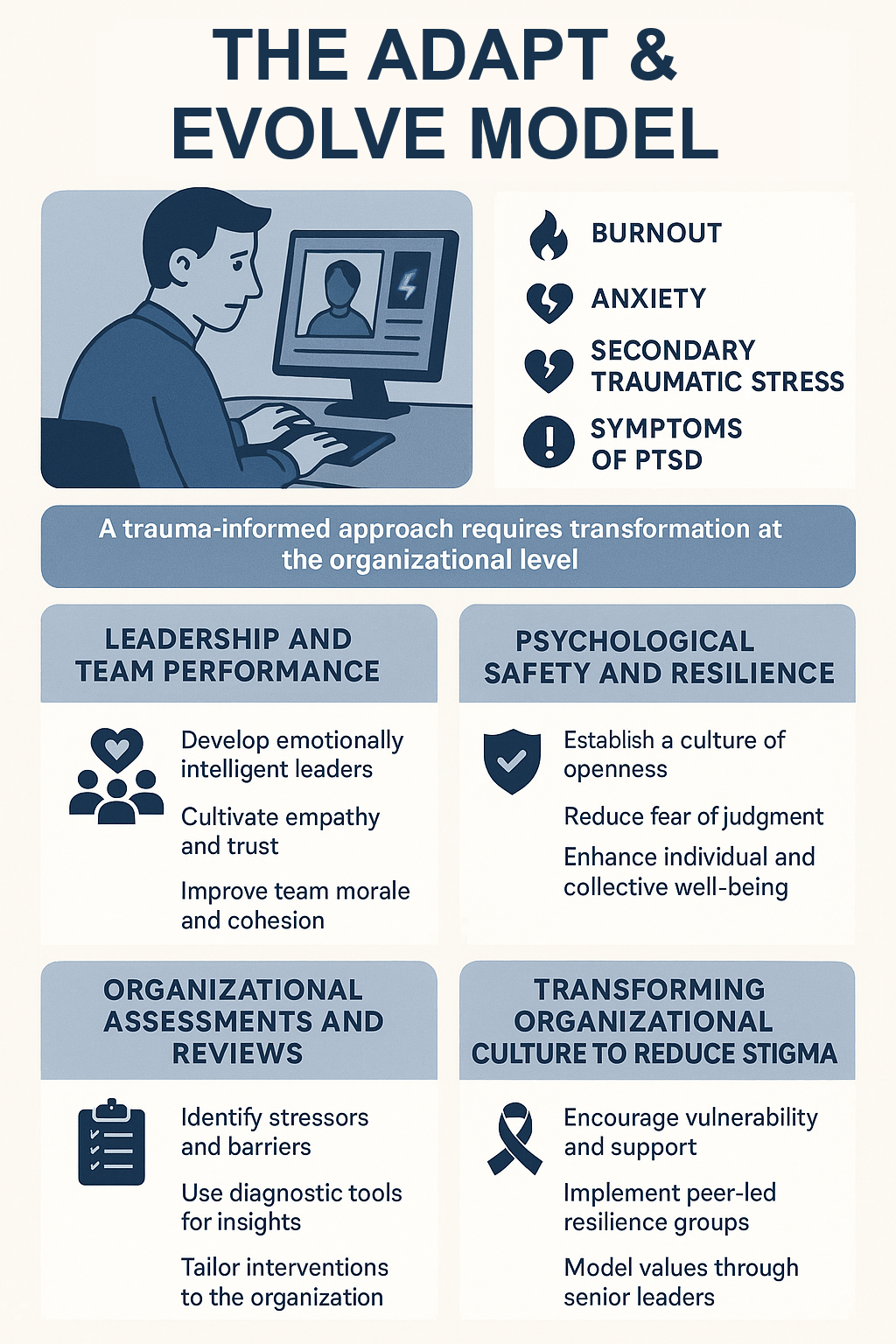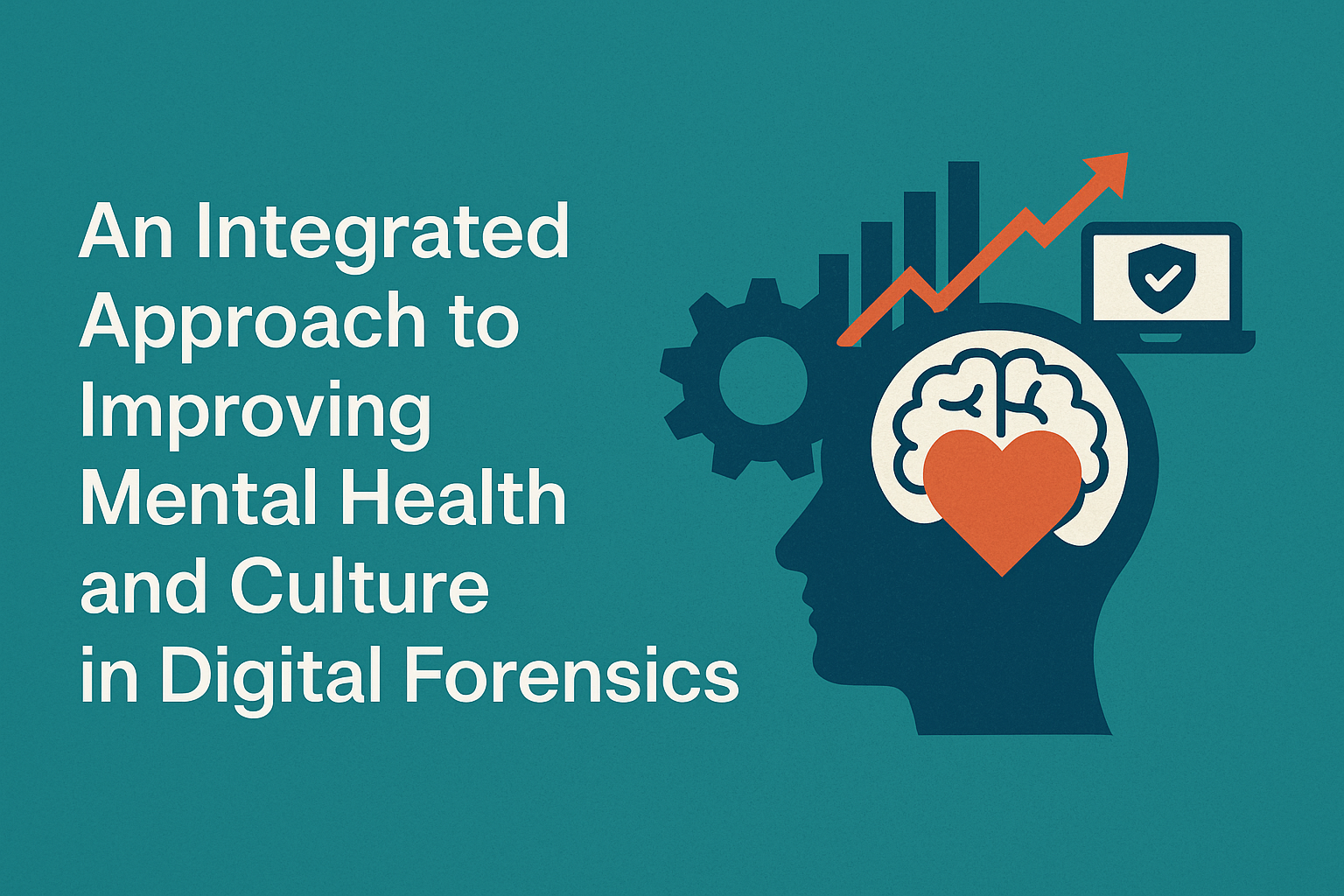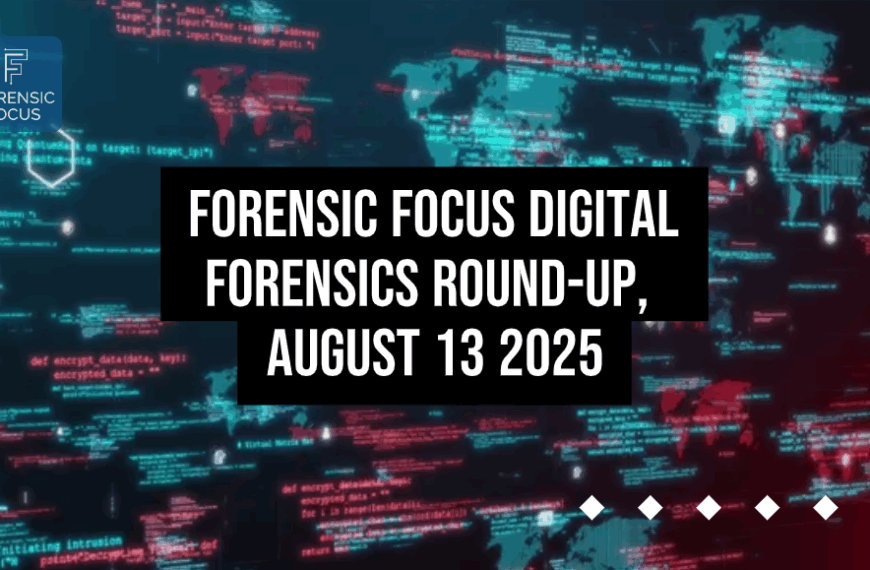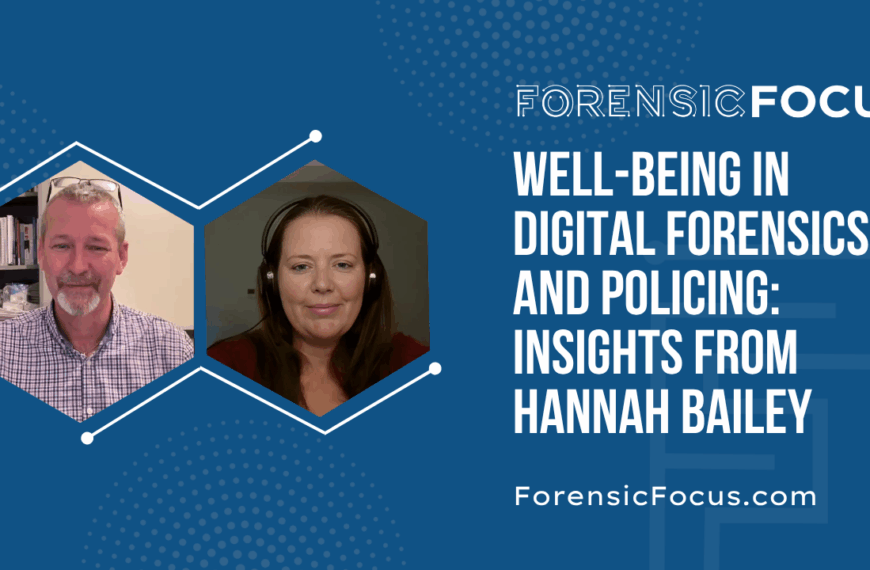by Paul Gullon-Scott BSc MA MSc MSc FMBPSS
Digital Forensic Investigators (DFIs) operate under immense psychological and operational pressure. Their daily responsibilities often involve examining disturbing content, making time-sensitive decisions, and managing high-stakes caseloads. This relentless exposure to trauma and stress can lead to serious psychological consequences, including burnout, anxiety, secondary traumatic stress, and symptoms consistent with post-traumatic stress disorder. These challenges are often magnified by an organisational culture that lacks supportive leadership, suffers from poor team cohesion, and perpetuates stigma around mental health and help-seeking behaviours. Addressing these systemic issues requires more than individual coping strategies—it calls for a trauma-informed transformation at the organisational level.
Mental Health in Digital Forensics
DFIs are routinely exposed to distressing material, particularly in investigations involving child sexual abuse material (CSAM). This exposure significantly heightens the risk of psychological harm, including secondary trauma and long-term emotional distress. Despite the clear risks, organisational responses have often been inadequate. Many DFIs report feeling unsupported by their leadership, working in environments characterised by unclear expectations and a lack of psychological safety. Additionally, cultural norms within forensic units frequently discourage openness about mental health, framing vulnerability as weakness and contributing to a climate of silence and stigma.
Adapt & Evolve’s Integrated Response
Adapt & Evolve, a UK-based consultancy, proposes a structured and evidence-informed model for transforming the culture of digital forensic units. This model integrates leadership development, psychological safety, and ongoing organisational assessment to create environments that support resilience and well-being, as follows:
Leadership and Team Performance
Central to this model is the development of emotionally intelligent, trauma-aware leaders. Adapt & Evolve delivers bespoke leadership workshops that emphasise trust-building, clear communication, and authentic connection. These sessions encourage managers to cultivate empathy and demonstrate genuine concern for the well-being of their staff. By fostering a culture of openness and support, leaders can dramatically improve team morale and cohesion. Rather than viewing leadership purely as a directive role, the approach advocates for a balance between accountability and emotional sensitivity.
Psychological Safety and Resilience
Creating psychologically safe workplaces is fundamental to mitigating the emotional toll of digital forensic work. Drawing on frameworks developed by Edmondson, Adapt & Evolve’s training helps organisations establish cultures in which employees feel comfortable expressing concerns and acknowledging distress without fear of judgement or reprisal. Psychological safety not only enhances individual well-being but also supports collective performance by reducing mistakes and encouraging collaboration.
Organisational Assessments and Reviews
In order to implement meaningful change, organisations must first understand the specific stressors and cultural barriers affecting their teams. Adapt & Evolve uses a suite of diagnostic tools, including anonymous surveys, structured interviews, and cultural audits to collect actionable data. These insights allow interventions to be tailored to the unique needs of each organisation, ensuring maximum relevance and sustainability.

Bridging Leadership Gaps and Building Trust
DFIs frequently report that their leaders appear emotionally disengaged, focused solely on operational outcomes while overlooking signs of psychological distress. This disconnection undermines trust and reduces the likelihood that staff will seek help when struggling. Adapt & Evolve’s approach addresses this by equipping leaders with the ability to recognise and respond to stress and trauma within their teams.
Training focuses on empathetic communication, the importance of active listening, and the value of emotional transparency. As leaders begin to model these behaviours, they foster a more trusting and supportive environment, directly influencing team morale, retention, and productivity.
Transforming Organisational Culture to Reduce Stigma
One of the most persistent barriers to mental health support in forensic settings is stigma. To dismantle this, Adapt & Evolve supports organisations in creating psychologically safe environments where vulnerability is not only accepted but encouraged.
Initiatives include establishing peer-led resilience groups and confidential support systems that allow individuals to access help without fear of career consequences. Equally important is the role of senior leaders in modelling these values when those at the top of an organisation share their own experiences and normalise mental health conversations. It signals to staff that seeking support is both valid and encouraged.
Why Trauma-Informed Practice Matters
Organisations that adopt a trauma-informed approach stand to gain significantly in both human and operational terms. Staff well-being improves as burnout, stress, and emotional exhaustion decline. Teams report increased engagement, stronger cohesion, and greater job satisfaction. Operationally, the benefits are just as significant: psychologically safe teams make fewer errors, collaborate more effectively, and adapt more readily to change. Importantly, trauma-informed practices also foster a sense of shared purpose and organisational integrity, shifting workplace culture towards sustained well-being and excellence.
Blueprint for a Trauma-Informed DFI Unit
A truly trauma-informed digital forensic unit begins with a rigorous assessment of organisational health. By identifying leadership shortfalls and cultural barriers, the groundwork is laid for evidence-based intervention. Leadership development should be tailored to the specific needs of DFI teams, prioritising empathy, communication, and trauma-awareness.
Simultaneously, policies must embed psychological safety into daily operations such as confidential reporting channels, flexible workload accommodations, and scheduled well-being check-ins. Creating peer support structures and ensuring these are accessible, trusted, and well-publicised reinforces a culture of shared responsibility and mutual care.
Finally, continuous monitoring and refinement of these practices ensures that organisations remain agile, responsive, and committed to long-term improvement.
Well-Being as a Strategic Priority
The mental health and well-being of Digital Forensic Investigators must be recognised as both an ethical priority and an operational imperative. The Adapt & Evolve integrated framework offers a holistic, evidence-based strategy for fostering resilient teams and supportive leadership. By embedding psychological safety, conducting thorough organisational assessments, and cultivating trauma-informed leadership, forensic organisations can move beyond crisis management and instead build cultures where well-being is actively protected and performance is sustainably enhanced.
Through intentional cultural transformation, DFIs can be supported not just to survive their roles, but to thrive within them—ultimately ensuring that the people at the forefront of digital investigations are given the care, respect, and support they so rightly deserve. For more on this topic, listen to our recent podcast with Adapt & Evolve.
Paul Gullon-Scott BSc MA MSc MSc FMBPSS is a former Digital Forensic Investigator with nearly 30 years of service at Northumbria Police in the UK, specializing in child abuse cases. As a recognized expert on the mental health impacts of digital forensic work, Paul now works as a Higher Assistant Psychologist at Roseberry Park Hospital in Middlesbrough and is the developer of a pioneering well-being framework to support digital forensics investigators facing job-related stress. He recently published the research paper “UK-based Digital Forensic Investigators and the Impact of Exposure to Traumatic Material” and has chosen to collaborate with Forensic Focus in order to raise awareness of the mental health effects associated with digital forensics. Paul can be contacted in confidence via LinkedIn.







